Counting practice Easy Addition Worksheets for Ages 4-8
5 filtered results
-
From - To
Introduce your child to the joy of math with our Counting Practice Easy Addition Worksheets for Ages 4-8! Each worksheet is designed to engage young learners with fun, age-appropriate activities that build essential math skills. Kids will enjoy colorful graphics and simple problems that make mastering addition a delightful experience. These worksheets not only boost counting confidence but also enhance problem-solving abilities. Perfect for home or classroom use, they ensure a solid mathematical foundation that seamlessly blends learning and fun. Join us at Kids Academy and watch your child's numeracy skills flourish!
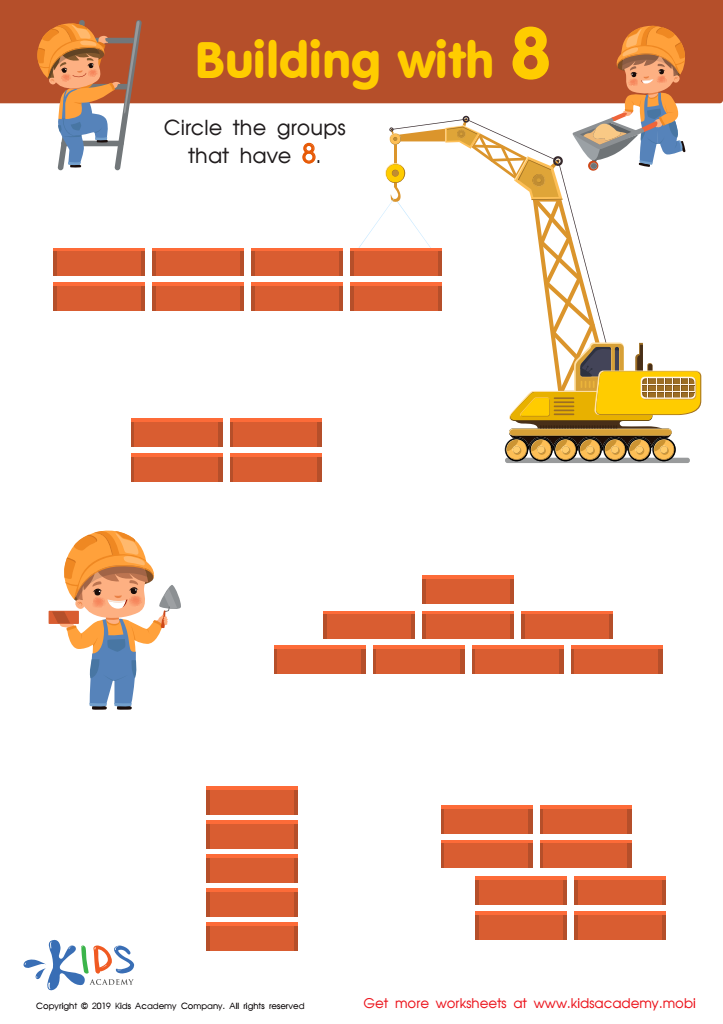

Building with 8 Worksheet
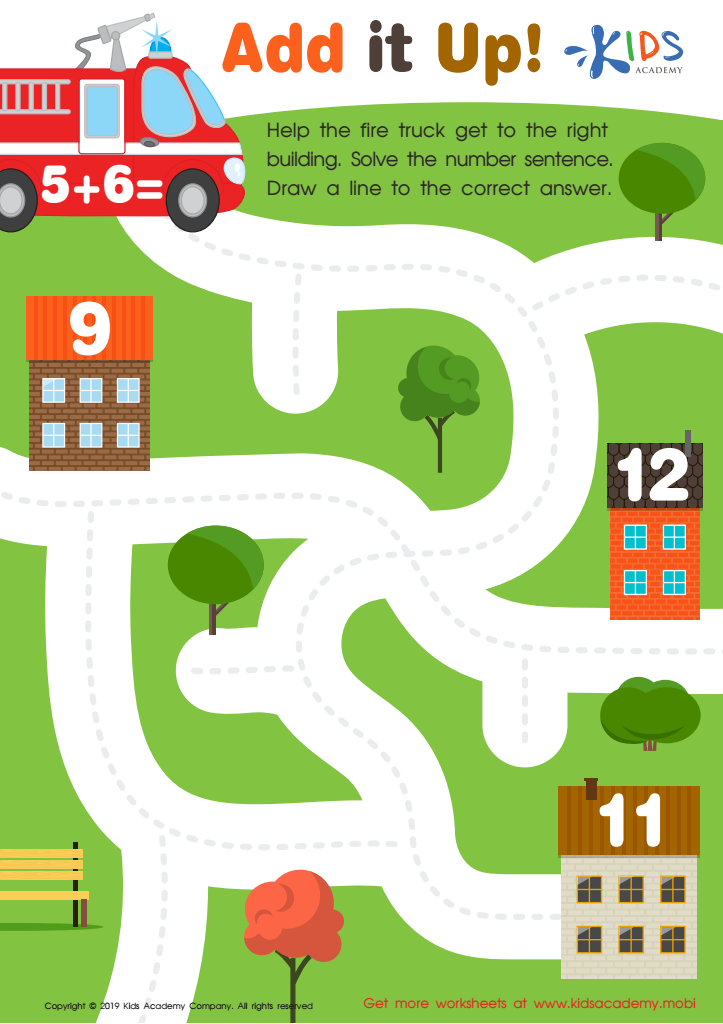

Add it Up Worksheet
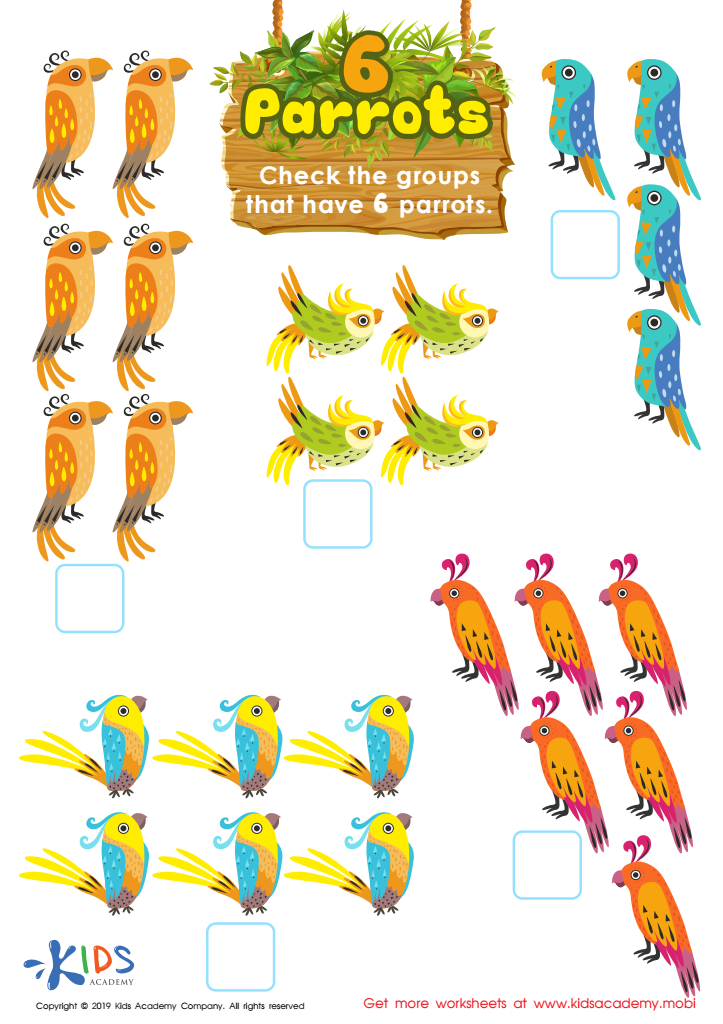

6 Parrots Worksheet
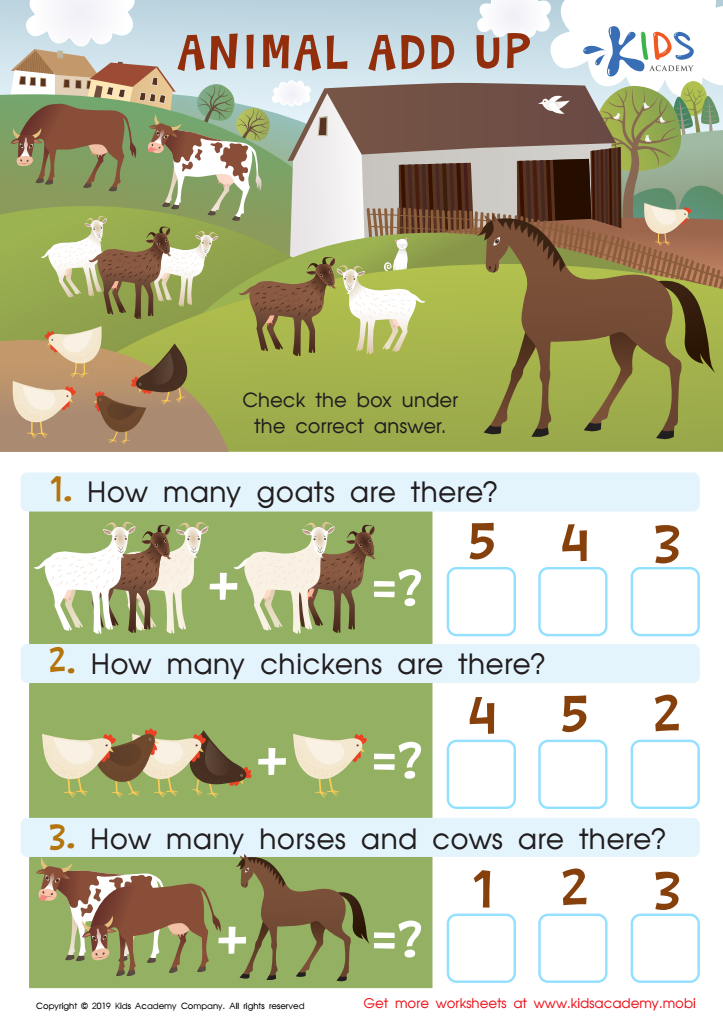

Animal Add Up Worksheet
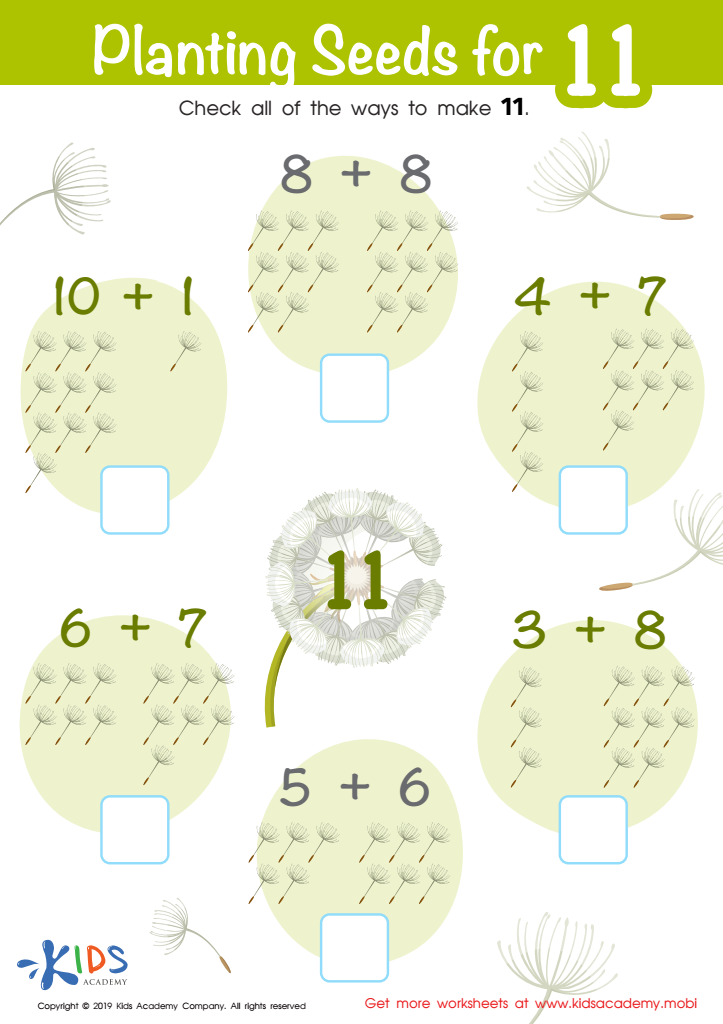

Planting Seeds for 11 Worksheet
Counting practice and easy addition for ages 4-8 are crucial for young learners, laying a strong foundation for their future mathematical abilities. Parents and teachers should emphasize these early math skills to foster cognitive development, enhance problem-solving abilities, and instill confidence in young children. At this age, children's brains are highly adaptable, and introducing math concepts early can improve their numerical fluency and understanding.
Through counting practice, children learn to recognize numbers, understand sequences, and grasp the concept of quantity—essential building blocks for more advanced math later on. Easy addition introduces them to the idea of combining quantities, developing their ability to think logically and solve simple problems. These skills extend beyond math; they underpin everyday activities like telling time, following recipes, and even playing games.
Furthermore, practicing counting and basic addition in a positive, supportive environment can make learning enjoyable and reduce math anxiety. It equips children with the skills they need to approach future mathematical concepts with ease and confidence. Parents and teachers play a critical role in shaping a child's attitude towards math, and by encouraging these activities, they nurture a child’s curiosity and love for learning, setting the stage for academic success.
 Assign to My Students
Assign to My Students






















